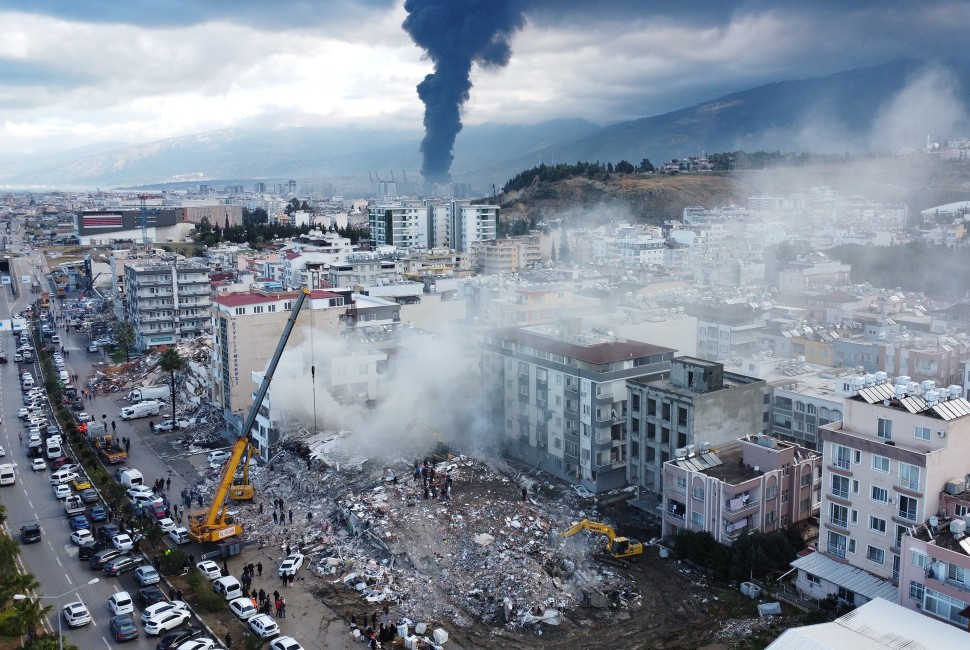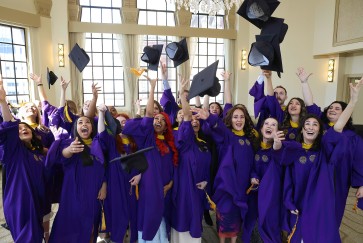In the wake of two massive earthquakes and aftershocks that hit Turkey and vastly affected Syria and other parts of the Middle East on Monday, Feb. 6, Northwestern students and alumni with ties to the region are working feverishly to organize fundraisers and raise awareness of the catastrophe.
“I’ve been hearing a lot of news about what is going on back home; however, no one really knows exactly what is happening,” said Deniz Uzun ’25, a student in the Weinberg College of Arts and Sciences and vice president of the University’s Turkish Student Association. “I feel like there are so many people whose voices have not been heard yet. There is a death toll that is constantly rising, so many cries for help, and a lot of people have not been helped yet.”
The Turkish Student Association is raising relief funds via Venmo @denizyoruk.
“I’m feeling very helpless, wishing I could at least be back home and feel as though I am with my people,” she said. “I almost feel guilty being so far away from the catastrophe. On the other hand, I’m proud of all my friends and the Turkish people I’ve met these past two days. It gives me hope to see how hard everyone is working.”
Uzun said she wants individuals considering a donation to know that every dollar helps.
“We have to act fast,” she said. “But with the right funding, we can reach all the people that are still trapped under collapsed buildings, and all the people who had to rush out of their homes in the cold winter weather that are now freezing on the streets.”
The NU Club of Turkey is also galvanizing support for people who have been impacted by the devastating earthquake to help with the long-term recovery efforts in Turkey and Syria.
“Northwestern alumni around the world have reached out to me asking how they can help with the disaster recovery efforts,” said Doruk Borekci ’97 MS (’25 P), president of the NU Club of Turkey. “As a club, we are also focused on continuing to support the survivors of this tragedy during the long recovery process.”
Others continue to mourn, worried about their loved ones and the ongoing rescue efforts.
“Many of us couldn’t sleep or focus in the last two days and kept watching the news from afar,” said Sebnem Ture, a graduate student in the psychology department of the Weinberg College, who also is from Turkey. “What has been important, though, is to raise awareness of how dark the situation is. Donations of any amount will be helpful, especially if we consider that one U.S. dollar is equal to almost 20 Turkish lira.”
From a historian’s viewpoint
“There are no words to describe our sadness and despair,” said historian İpek Kocaömer Yosmaoğlu, director of the Keyman Modern Turkish Studies Program at the Buffett Institute for Global Affairs. “Unfortunately, this kind of tragedy is no stranger to Turkey: 17,000 lives were lost in 1999 after an earthquake struck the northwestern part of the country. In response, the government introduced strict anti-seismic building regulations in 2007 that added momentum to the construction-led growth Turkey has experienced until recently.
“We do not yet know if any of the pancaked buildings we see in news reports were constructed in adherence to such regulations, and it is even harder to guess whether there will be any accountability in the future.
“For the moment, our thoughts are with the people who lost their lives, their loved ones and their shelter and those who are trying to defeat the odds to help them. The region of Syria that took the brunt had already been devastated during the country’s civil war. Now their only border crossing to Turkey where humanitarian aid could flow through is inaccessible.”
To make a donation
For those who want to donate, Uzun, Ture and Borekci recommend the following organizations:
- Turkey Earthquake Relief Fund by Turkish Philanthropy Funds
- Turkey's Search and Rescue Association (AKUT)
- Ahbap (Turkish Friends Association)
- The Syrian American Medical Society (SAMS)
For those seeking support
In a message to international students, Northwestern Buffett’s Office of International Student & Scholar Services (OISS) offered support during this time with a reminder to reach out to an OISS Advisor or Northwestern Counseling and Psychological Services (CAPS), which offers mental health services to students, including same-day virtual appointments on the Evanston campus that can be used for any mental health concern. Staff in the Dean of Students office, Student Assistance and Support Services and Religious and Spiritual Life are also available to provide support. In addition, all students have access to TimelyCare, a virtual mental health app that is free regardless of full- or part-time status.


